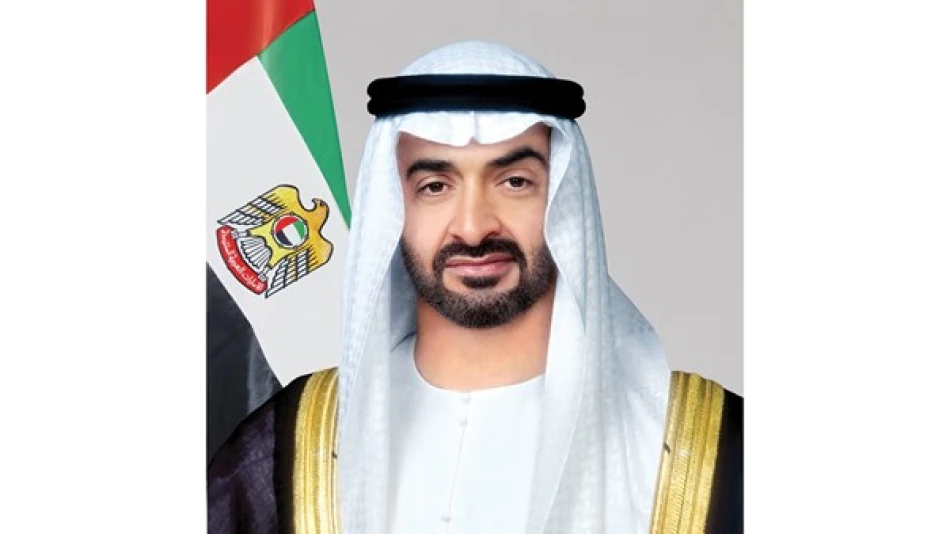
State Leader Visits Al-Alamein, Welcomed by Egyptian President
UAE President Sheikh Mohamed bin Zayed Arrives in Egypt for High-Level Diplomatic Talks
UAE President Sheikh Mohamed bin Zayed Al Nahyan has arrived in Egypt's New Alamein City for an official state visit, underscoring the deepening strategic partnership between two of the Middle East's most influential nations. The visit, personally received by Egyptian President Abdel Fattah el-Sisi, signals continued alignment on regional economic and security priorities amid shifting geopolitical dynamics.
Presidential Reception Highlights Bilateral Ties
President el-Sisi personally welcomed Sheikh Mohamed bin Zayed at New Alamein International Airport, with both leaders engaging in what officials described as "brotherly discussions" during a brief reception at the airport's VIP lounge. The choice of New Alamein as the meeting location is symbolically significant, as the planned administrative capital represents Egypt's ambitious modernization drive—a project that has received substantial UAE backing.
During the airport reception, both leaders emphasized the historical strength of UAE-Egypt relations, with President el-Sisi acknowledging Sheikh Mohamed bin Zayed's special standing among the Egyptian people, continuing the legacy established by the late Sheikh Zayed bin Sultan Al Nahyan, the UAE's founding father.
Strategic Context: Regional Power Dynamics
Economic Cooperation Takes Center Stage
The timing of this visit comes as both nations navigate complex regional challenges while pursuing ambitious economic diversification strategies. The UAE has emerged as one of Egypt's largest investors, with Emirati funds playing crucial roles in mega-projects including the New Administrative Capital and various renewable energy initiatives.
This diplomatic engagement follows a pattern of increased Gulf-Egypt cooperation, particularly as traditional regional powers seek to strengthen ties independent of broader Middle Eastern conflicts. The UAE's investment approach in Egypt mirrors its successful economic diplomacy model used in other emerging markets.
Geopolitical Implications
The visit occurs against a backdrop of shifting regional alliances and economic pressures. Egypt's strategic position controlling the Suez Canal—a critical global shipping route—combined with the UAE's position as a regional financial hub, creates natural synergies for deeper cooperation on trade, logistics, and energy security.
Both leaders face similar domestic priorities: economic modernization, youth employment, and technological advancement. Their alignment on these issues positions the UAE-Egypt partnership as a potential model for Arab world cooperation beyond traditional security arrangements.
Investment and Market Perspective
For international investors, strengthened UAE-Egypt ties signal stability in two key Middle Eastern markets. The UAE's continued confidence in Egypt's economic trajectory, demonstrated through high-level diplomatic engagement, may encourage broader international investment flows into Egyptian infrastructure and development projects.
The relationship also creates opportunities for multinational corporations seeking regional expansion, as improved bilateral cooperation typically leads to streamlined business regulations and joint venture opportunities across sectors including renewable energy, tourism, and technology.
Most Viewed News

 Layla Al Mansoori
Layla Al Mansoori






